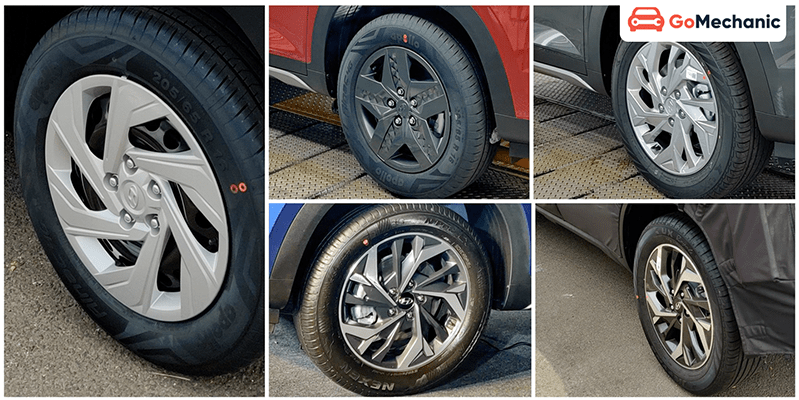Have you ever wondered which wheels are suitable for your vehicle? Today we will look at the important differences between alloy wheels and steel wheels and find out what’s right in your car.
When it comes to steel or alloy wheels, each is a remarkable option, so take a look at what sets them apart and what you need to pass up.
Steel Wheels
If you opt for Steel Wheels or what some people call them- The “Steelies” are meant to be more durable and are commonly found on heavy-duty vehicles as these wheels don’t break usually. They are heavier in terms of weight and require more power for rotation than lighter alloys and because of that you are not going to get great acceleration, however, you will benefit from things like improved winter conditions.
Steel Wheels also alter their shape with time and that causes stability issues and uneven tire wear shortening the life of rubber treads on tires but the good thing is they can be fixed back to normal with weight balancing or you can also use steel wheels with Tube or without a tube.
The bottom line is, that when going with Steel Wheels, you get something that is easy, affordable, and durable.
Alloy Wheels
Now, with Alloy Wheels you’re going to pay a higher premium, however, they are far more lightweight and get much better acceleration than the steel wheels. They are also extremely popular because of the style choices you have. They can be painted, polished, chromed, or machined according to your taste.
However, it’s important to note that Alloy Wheels are more brittle. Upon impact with a strong obstruction, they are more likely to break rather than deform, which is something to consider depending on your driving conditions and habits. The brittleness of alloy materials makes them less forgiving in rough terrains or when hitting potholes. Despite this, their lightweight nature improves handling and braking performance, making them ideal for performance-oriented vehicles.

Making the Choice
Advantages and Disadvantages:
Each steel and alloy wheel has its specific advantages and disadvantages.
|
Steel Wheels |
Alloy Wheels |
|
|
- Weight Comparison:
-
-
- Theoretically, Alloy wheels are only 2-3 kilograms lighter than steel wheels.
- In Practicality, 1-2 kilograms are taken off from every corner of the car, making the car 6-7 kilograms lighter in total (excluding the spare, which remains steel).
- This reduction in unsprung weight is said to multiply seven times in effect, making the car approximately 35 kilograms lighter when in motion.
-
- Choosing Between Steel and Alloy Wheels:
-
-
- Long-term choice depends on your specific wishes and options for your car.
- Steel wheels are better for rough conditions and value-for-money solutions.
- Usually Manufacturers offer a wider tire size with alloy wheels and a lower tire profile for the same car.
- Alloy wheels are preferable for performance, a wider grip and a stylish look.
-
- Decision Factors:
-
- Understanding the differences between these types of wheels will help you make a better decision.
- Consider reliability, performance, style, and value to ensure optimal vehicle performance.





